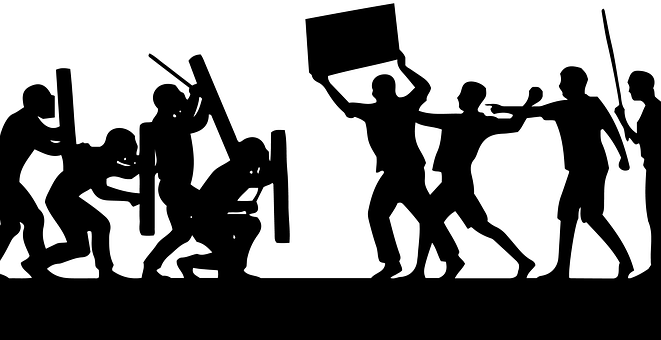The CCP leadership in Beijing is concerned about growing domestic unrest this fall and the long-term implications for stability within the country. Chinese citizens are upset and demonstrating over the government’s zero Covid-19 policy which has led to tragic incidents and a downturn in the economy. In one case, fire and rescue personnel were unable to reach victims when a fire broke out in a locked down high-rise apartment building. Citizens were incensed by the needless deaths of the apartment dwellers. The demonstrations across China are bringing about comparisons to the 1989 demonstrations in Tiananmen Square. The government is censoring news about the deaths and demonstrations. Photos of demonstrators holding blank white placards symbolizing their lack of free speech quickly spread across the Internet.
The earlier demonstrations, beginning in April 1989, were sparked by the death of the reformist Chinese Communist Party Chief Hu Yaobang. Protests spread to major cities across China, along with violence and the student occupation of Tiananmen Square in Beijing. More than 100,000 students took to the streets in the capital. More recently, on the 30th anniversary of Hu’s death, the Chinese government removed mentions of him on Weibo and the Chinese Internet. Leaders again feared unrest and chaos could spread and threaten the Party’s tight grip on the country.
Last month, just as protests were starting to calm down, former CCP General Secretary Jiang Zemin, passed away at the age of 96. “The timing of Jiang’s death was striking as it occurred amidst the largest public pushback against CCP rule since the student protest movement in spring 1989, which culminated in the June 3-4 Tiananmen Square massacre that preceded his assumption of CCP leadership at the 13th Central Committee’s Fourth Plenum that same month,” notes John S. Van Oudenaren of the Jamestown Foundation.
Similarly, the CCP leadership feared the current wave of demonstrations, ostensibly about the severe Covid lockdown, could morph into a more general renunciation of the legitimacy of the Chinese Communist Party and its principal leaders in a similar way to 1989 Tiananmen Square protest. President Xi has found himself trying to balance between totally shutting down society with a severe lockdown to stem the spread of the new variant of the virus, or bend to civil society and loosen the restrictions while risking increased cases of the virus.
In response to pressure from the mass demonstrations President Xi Jinping folded and chose to relax Covid restrictions. In this case, the power of the people, won over the authoritarian dictates of the Chinese Communist Party leadership. Citizens in Western democracies often find ways to make their voices heard and change public policy. In China, such “luan” or chaos is not tolerated by Xi Jinping or the CCP leadership. It makes what happened this week all the more remarkable and brings into question the true strength of the Communist Party.
Xi Jinping, recently re-elected to a record third term as president in October, faces a domestic economy that is struggling. He is continuing to use a strong-armed interventionist approach against private sector businesses that is hurting business growth. The CCP has maintained power in the country mainly due to the expansion of the economy in recent decades. If the Party can’t produce good economic results, and the broad base of the population is suffering both economically and physically, the legitimacy of the CCP and its leadership could be called into question.
Analysts this week suggest that Xi Jinping and the top leadership recognize this possibility and view themselves as in a weakened position, despite Xi’s directly overseeing all important levers of power, including the military, judiciary, police, propaganda, and foreign policy establishments. Looking to history for lessons learned from the 1989 demonstrations, it appears Xi Jinping chose the pragmatic course.
There are differences between 1989 and today. The middle class is larger in China, their expectations are higher, and they are more connected to the outside world. Thirty-three years ago, students had little practical understanding of democratic practices, free market economics or advanced technologies common in the West. All that has changed. Xi may have taken the only action possible in the short-run to quell unrest. However, it may have opened the door to the eventual downfall of authoritarian rule in China.
Daria Novak served in the U.S. State Dept.
